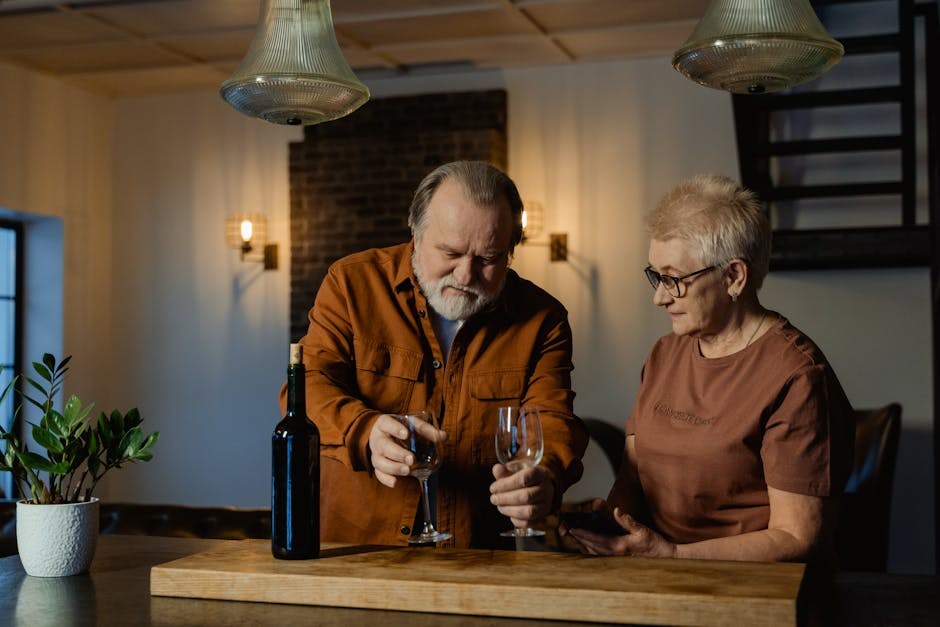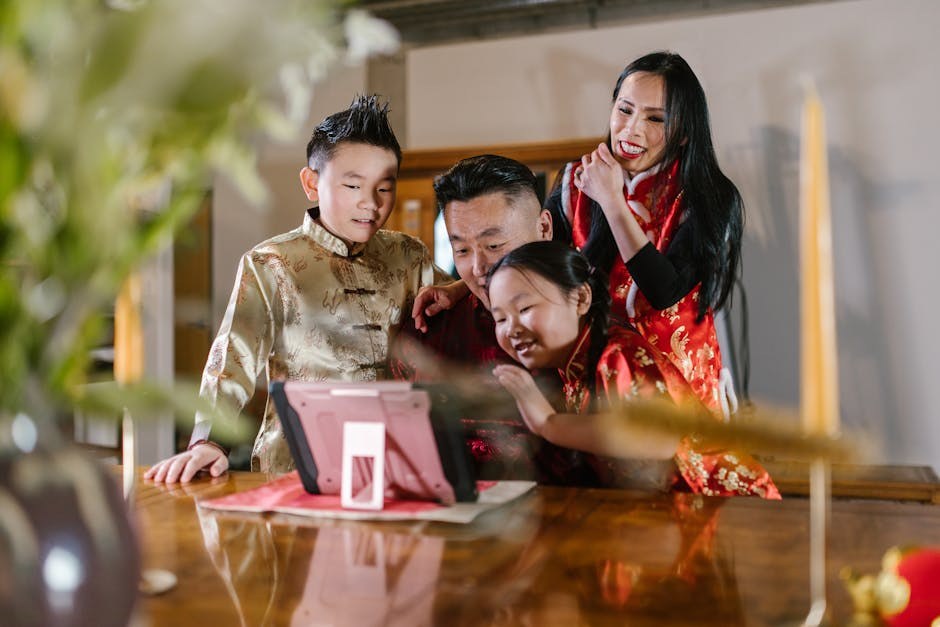You ask yourself the same question after every heartbreak – why does the wrong guy keep showing up in your story? Attraction can feel mysterious and inevitable, yet the choices behind it are often patterned and predictable. When chemistry flares, it’s easy to overlook mismatches, waive your standards, or assume time will sand down the edges. But there are understandable reasons you circle back to the wrong guy, and once you name them, you can steer in a different direction without losing the romance you want.
Seeing the Pattern Before It Repeats
Physical pull arrives first – a smile, a voice, a presence – but compatibility lives deeper than a spark. When looks and charm take the lead, the quieter signals of character, availability, and shared values get drowned out. That’s how the wrong guy slides into center stage: he feels exciting, familiar, or urgent, while the steady, compatible option seems slow by comparison. Reframing what “exciting” means can change who you notice and who gets a second date.
Common Reasons You Keep Choosing the Same Type
-
Power over partnership feels thrilling in the moment. If an assertive, take-charge vibe has always pulled you in, you may equate intensity with safety – as though decisiveness guarantees devotion. The catch is that dominance often prioritizes one person’s comfort. When the balance tips toward control, your needs shrink to fit his preferences. The wrong guy keeps winning because “strong” reads as “secure,” but what you actually want is mutual respect, not supervision.

-
You’ve been surrounded by good men – and now crave contrast. Growing up around considerate brothers, cousins, or close friends can set a high bar. Ironically, that foundation can push you to hunt for something “different” – a dramatic story to prove you’re not playing it safe. Novelty can masquerade as chemistry. Check whether your urge to zig where everyone else zags is steering you toward the wrong guy simply because he breaks the mold, not because he fits your life.
-
Early models of love still whisper in the background. The first lessons you absorbed about care, attention, and reliability don’t disappear when you start dating – they echo. If a parental figure was inconsistent, dismissive, or volatile, inconsistency can feel familiar, even comforting. Familiarity is powerful; it’s why you might rationalize the wrong guy as “not that bad” – your nervous system learned long ago to make room for uncertainty.
-
Familiar drama feels easier than unfamiliar peace. People often return to what they know – even when it hurts – because predictability lowers short-term anxiety. If you’ve dated a similar personality before, you may mistake understanding his patterns for being able to manage them. But knowledge isn’t leverage. The wrong guy becomes your default when you confuse “I’ve seen this” with “I can handle this.”

-
You’re secretly auditioning for the role of savior. Many caring, capable women carry a quiet belief that love can rehabilitate. You invest, you explain, you wait. Change is possible – but it’s personal, not a gift you can deliver on his behalf. If effort flows only one way, you’re parenting, not partnering. The wrong guy keeps returning because you measure progress by potential, not by consistent behavior.
-
Self-esteem slumps distort your filter. Confidence doesn’t mean thinking you’re perfect – it means trusting your boundaries are valid. When your self-worth dips, red flags look negotiable and bare-minimum gestures feel like proof of devotion. Charismatic people – including some who love admiration more than intimacy – are skilled at spotlighting your doubts. The wrong guy thrives in that dim lighting. Strengthen the light, and he has nowhere to hide.
-
Dating burnout tempts you to settle. Tired of small talk and ghosting, you accept the first offer because the process itself feels exhausting. Practicality matters – but resignation is not practicality. Ask yourself: if all the people you’ve liked stood in one room, would you actively choose him again? If the honest answer is no, that’s the wrong guy shaped by fatigue, not attraction.

-
Empty spaces feel scarier than empty promises. If solitude rings like an alarm, any companionship can feel like relief. But when a relationship exists to avoid being alone, your standards become flexible in all the wrong places. Loneliness spikes the value of temporary attention. It keeps the wrong guy on speed dial – not because he meets your needs, but because he fills the silence.
-
You confuse tolerance with love. Long-term intimacy requires patience for quirks – not endless endurance for hurtful patterns. Some differences are neutral; others erode self-respect. Love that constantly asks you to explain away disrespect is mislabelled tolerance. That label is how the wrong guy stays – the story says you’re “understanding,” but your boundaries are quietly disappearing.
-
You’re dating his potential – not his present. Imagining how great he’ll be “once” he gets therapy, finds a better job, or finally communicates is a powerful daydream. Yet relationships don’t exist in the future; they live in daily habits. If the version you claim makes you happiest is hypothetical, then the wrong guy you’re with today is the real data you must use.
-
Respect reads as boring when chaos taught you to equate anxiety with romance. Butterflies can be delight – or a warning. A calm connection might feel unfamiliar, and unfamiliar often feels flat at first. Give genuine kindness enough time to register. Write down what safety feels like in your body. The wrong guy often creates an adrenaline storyline; peace can seem quiet only until you realize it’s actually spacious.
-
Looks lead the audition – and end the play. Attraction matters, but looks without empathy or curiosity lose their charm quickly. If the conversation stalls, if humility is missing, if your needs are mocked, chemistry alone can’t carry the script. When you prioritize appearance over character, you keep recasting the wrong guy because the spotlight stays on the wrong criteria.
When Opposites Don’t Attract – They Collide
Compatibility is not sameness – it’s cooperation. Two people can admire each other and still be mismatched in pace, values, or vision. That mismatch becomes glaring when intimacy deepens, bills appear, families intertwine, and personal goals demand trade-offs. When the grind starts, the wrong guy is the partner who can’t, won’t, or doesn’t want to collaborate on the mundane yet essential work of daily life.
-
You ignore your own attraction – and then resent the fallout. Sometimes you go all-in on personality and minimize physical chemistry, telling yourself that affection will bloom later. For a few, it might. For many, it doesn’t. Attraction is not shallow; it’s one thread in the fabric. If that thread keeps snapping, frustration and avoidance creep in. The wrong guy here isn’t unkind – he’s simply not your match, and pretending otherwise breeds distance.
-
You treat money as a shortcut to fulfillment. Stability is valuable, but wealth cannot substitute for care, humility, or presence. If you enter a relationship to outsource your security, power imbalances multiply fast. Dependence silences your voice – and once quiet, it’s hard to advocate for your needs. That’s how the wrong guy becomes the expensive decision you keep justifying.
-
You accept the love you believe you deserve. When your internal narrative says you’re “too much,” “not enough,” or “hard to love,” you unconsciously pick proof. People who echo that script feel “right,” not because they’re healthy, but because they’re familiar. Rewrite the script – compassionately, deliberately – and notice how different men start to stand out. As self-respect rises, the wrong guy loses his casting call.
Rewriting the Casting Call
Change doesn’t require perfection – it requires pattern awareness plus small, consistent experiments. You don’t need to swear off dating or file a personality change. Instead, shift how you vet, how long you wait before naming a pattern, and how you respond when boundaries are tested. These adjustments move you away from the wrong guy without dimming romance.
Practical Shifts That Alter Your Choices
-
Slow the pace before you speed the commitment. Strong attraction tempts quick exclusivity. Try stretching the discovery phase. See him in varied contexts – tired, late, disappointed, with friends, with family. Patterns emerge when novelty wears off. The wrong guy struggles to maintain consistency; a good match doesn’t depend on the lighting.
-
Track behavior, not promises. Keep a brief, private log after early dates: how you felt before, during, and after; what actions matched his words; what didn’t. This isn’t cynicism – it’s clarity. Promises are easy under candlelight; follow-through is the daylight test. The wrong guy often excels at declarations and underdelivers on details.
-
Define your non-negotiables – and the few you’ll flex. Write three essentials grounded in values – e.g., emotional availability, respect for boundaries, willingness to repair after conflict. Then name a few preferences you can bend on. When you know the difference, you stop sacrificing essentials to keep momentum with the wrong guy.
-
Let boredom be data, not a verdict. If kindness feels flat at first, give it three or four more ordinary dates – coffee, errands, an early walk – before you decide. Your body may need time to recalibrate from chaos. The wrong guy has trained your nervous system to equate intensity with interest; gentleness might register as quiet until safety lands.
-
Build a full life outside romance. Friends, hobbies, movement, rest – these support beams keep you from leaning on anyone like a crutch. When your life is rich, urgency fades, and you evaluate with curiosity instead of scarcity. Scarcity is the fuel that keeps the wrong guy running hot in your imagination.
-
Practice micro-boundaries early. It can be as small as, “I’m heading home at ten,” or “Let’s split the check tonight.” You’re not testing him – you’re telling the truth about you. How he responds is information. The wrong guy treats boundaries as obstacles; a healthy partner treats them as invitations to know you better.
-
Distinguish repair from repetition. Every couple stumbles. Repair sounds like accountability, changed behavior, and patience. Repetition sounds like excuses, amnesia, and pressure to move on without addressing impact. The wrong guy is fluent in “It won’t happen again” – until it does.
-
Honor your early no. The first “no” is the cheapest – in time, energy, and emotion. If your gut flags something specific – not generalized anxiety, but a concrete mismatch – trust it. Ending an almost-relationship is brave. It keeps space open for the person who makes “yes” feel easy and true, not like work required to justify the wrong guy.
Reframing Attraction Without Losing Spark
You don’t have to choose between heart and head. You can keep the butterflies while protecting your peace. Try recasting “chemistry” as a blend – curiosity, respect, emotional steadiness, playfulness, and desire. Each piece matters. If desire is the only part that shows up, you are likely dealing with the wrong guy. If respect and steadiness arrive but curiosity is missing, the connection may be kind yet thin. Balance creates longevity.
Questions to Ask Yourself Before Saying Yes
-
Do I like who I am around him? If you feel smaller, quieter, or more defensive, that’s a meaningful signal. The wrong guy shrinks you; the right one helps you unfold.
-
Does his attention feel like a gift or a test? Gifts are offered freely. Tests keep you hustling for approval. If you’re performing, you’re not partnering – you’re auditioning for the wrong guy.
-
When we disagree, what happens next? Disagreement should invite understanding, not punishment. If conflict turns into withdrawal, mockery, or scorekeeping, you’re getting a preview. The wrong guy treats conflict like combat; a good partner treats it like a chance to collaborate.
-
Can I name my needs out loud without bracing? If honesty sparks anxiety because backlash is expected, clarity has already answered your question. That’s the wrong guy – however intoxicating the highs.
If You’ve Already Chosen Him Before
Compassion first. You weren’t foolish – you were human, hopeful, and likely doing your best with the models you had. Extract lessons without shame. What trait did you ignore? What promise outweighed a pattern? What boundary wobbled first? When you answer gently, you build wisdom that prevents the next version of the wrong guy from slipping past your gate.
What Healthy Love Actually Looks Like Up Close
Healthy isn’t passive – it’s active and awake. It shows up on time. It calls when it says it will. It apologizes without turning the apology into a lecture. It asks what you need and believes you the first time. It missteps – then repairs. It makes room for your ambitions and your rest. You still get butterflies, but they’re not masking dread. Against that backdrop, the wrong guy – whether dazzling, wealthy, or wildly charming – finally looks how he always was: like a detour away from yourself.
If you are ready to choose differently, begin quietly. Keep your standards where your future self can reach them. Tune your attention to consistency over spectacle, accountability over assurance, and reciprocity over rescue. You are not hard to love – you are hard to fool. And that alone is enough to retire the wrong guy from your story.